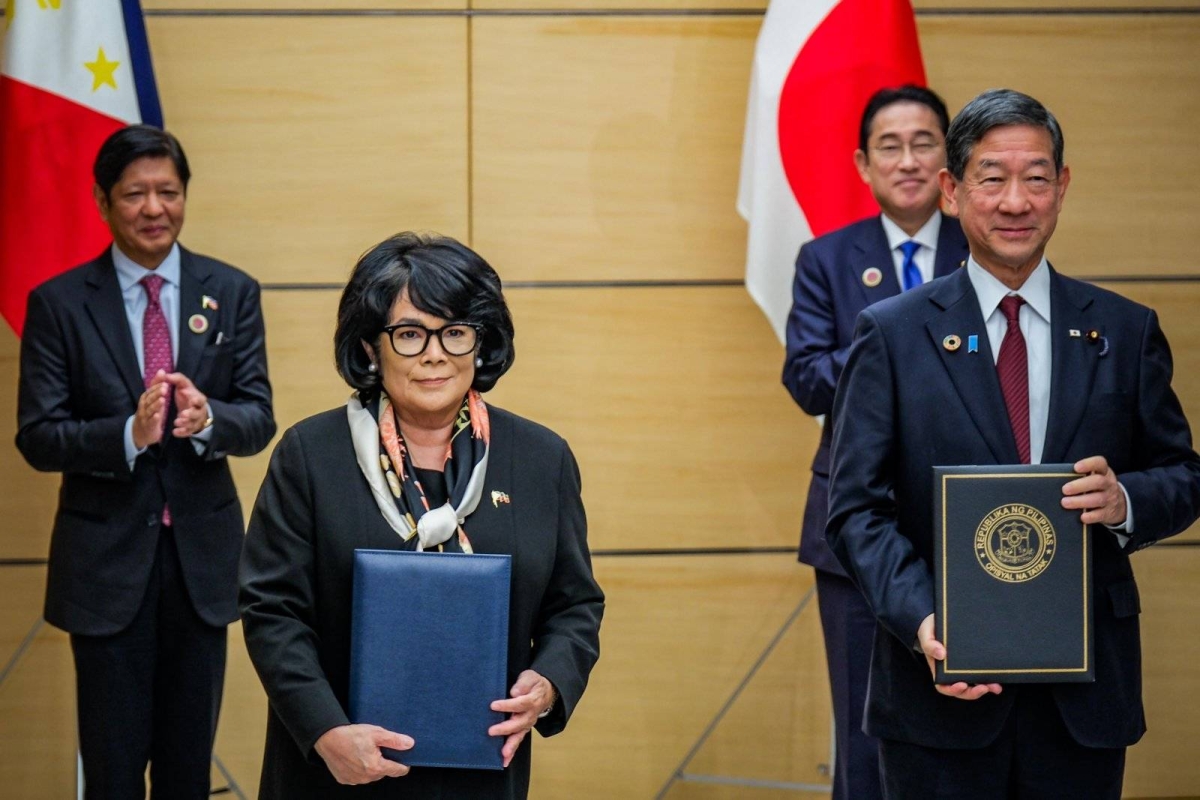In an interview with Japanese media in Tokyo, President Ferdinand Marcos Jr. emphasized the importance of finding “new solutions” to deescalate tensions between the Philippines and China in their long-standing dispute over the South China Sea. As China continues to assert its territorial claims in the region, President Marcos highlighted the need for the Philippines to maintain strong alliances to counter China’s growing aggression.
President Marcos acknowledged that tensions in the South China Sea have been on the rise in recent months and years. However, he emphasized that the Philippines remains committed to pursuing peace and promoting communication between all parties involved. Despite the complexity of the geopolitical challenge posed by the South China Sea dispute, President Marcos made it clear that the Philippines has no intention of initiating a new conflict in the region.
President Marcos drew attention to the ongoing war between Russia and Ukraine, describing it as a “tragedy.” He pointed out that given the current global climate, no country, especially in Asia, desires to start another conflict. Instead, the Philippines aims to uphold a rules-based order and maintain peace amid rising geopolitical tensions in the region.
While acknowledging the absence of a definitive answer to the South China Sea issue, President Marcos expressed the Philippines’ willingness to explore new solutions to regional problems. He emphasized the need for continuous efforts to formulate an effective response to the evolving situation in the South China Sea, where changes in approaches are occurring rapidly.
President Marcos highlighted the growing collaboration between the Philippines and Japan as a positive example of evolution. The Philippines recently became the first recipient of the Japanese Official Security Assistance (OSA), demonstrating the strengthening alliance between the two countries. President Marcos emphasized the importance of joint military training and interoperability between allies to enhance their collective defense capabilities.
Furthermore, President Marcos mentioned the trilateral agreement between the United States, Japan, and the Philippines as a pattern that is emerging in the region. This agreement reflects the evolving nature of alliances and the need for closer cooperation among countries facing common security challenges.
President Marcos’s visit to Tokyo coincided with the 50th anniversary of the Association of Southeast Asian Nations (ASEAN)-Japan Relations Summit, where leaders from ASEAN countries gathered to discuss regional cooperation and shared goals.
In conclusion, President Marcos Jr. stressed the urgency of finding new solutions to ease tensions in the South China Sea dispute. The Philippines remains committed to maintaining peace, upholding a rules-based order, and strengthening alliances in response to China’s increasing assertiveness in the region. As the geopolitical landscape continues to evolve, the Philippines is open to exploring innovative approaches and fostering closer collaboration with its allies, such as Japan, to address the complex challenges in the South China Sea.
Source: The Manila Times








